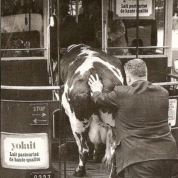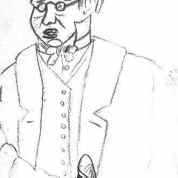 | Please wait... |
Random cards
|
| conceited
presuntuoso, arrogante, borioso poter disegnare, raffigurare qualunque cosa Quotes  Robert Doisneau 21 ning.com motivi Mind management card 86 http://www.cancellieri.org/galleries/roma/small/pict0648 cortile roma courtyard rome.jpg ribellione Essere odiato  Dito medio ubbidienti Quando (non) filosofare? Participation
E chorar bem de mansinho E piangi piano Servire persone cooperazione  Irving Penn 62 bisogno di protezione Mauro Maldonato QUANDO DECIDIAMO S IAMO ATTORI CONSAPEV OLI O MACCHINE BIOLO GICHE ?  sofia_vergara_0009 jealousy A chi (non) ho voluto bene?  card 312  Helmut Newton 1 Cosmopolitismo bisogno di evitare traumi losing control over our own "system"  Dipinti di Alfred Hitler Alfred Hitler pantings 6  Mosaici di umanità 92 pulizia, igiene The Power of Introverts:|A Manifesto for Quiet Brilliance Author Susan Cain explains the fallacy of "groupwork," and points to research showing that it can reduce creativity and productivity. Che male ho fatto a X? 7 Ways to Create and Deliver Online Quizzes Le mie miserie Cosa mi va di fare Learn German - words for food bisogno di mantenere le abitudini Freedom Responsabilità stress io, mio padre, mia madre e il resto del mondo Ginger (S. Eustachio) tel 06-6864995  Mosaici di umanità 80 en.wikipedia.org/wiki/Cognitive_bias vigliacchi Eventi Roma (funweek.it) What is the Acceptance Commitment Therapy? Academy Awards Winners| (Oscar Winners) BEAUTY Being beautiful, having one or more beautiful partners, having beautiful friends, leaving in a beautiful house, watching beautiful pictures / objects / performances, reading beautiful literature, watching / owning works of art, hearing beautiful music en.wikipedia.org/wiki/Ken Wilber Cosa mi conviene fare? le mie aspettative Come mi conviene comportarmi con gli altri? Humor's Healing Potential (by Brian Luke Seaward) - PDF Arbitro Con chi non amo interagire? I miei progetti Eventi a Roma (info.roma.it)  Andreas Gursky 5 Colpevole berlusconi paura dell’insuccesso daydreams Sto facendo qualcosa che mi può danneggiare? avere più denaro Interpersonal, interactive behaviour  Sebastião Salgado Photographs 42 Uso comune Chi colpire sfacciati  Sebastião Salgado Photographs 55 causa del male è l'ignoranza del bene Boarische Spruchsammlung fish oil Who do I think I am?  Colloquio  Mosaici di umanità 148 sozialwissenschaften
 3d758078c0f647f9c9cfec1ac4752f97 Distruggere illusioni è un crimine In LinkedIn  Andreas Gursky 1 QUALCOSA ESPLODERE Auseinander gelebt | Ladykracher  Mosaici di umanità 108 i genitori DSR la rivoluzione dell'informazione Una società senza conflitto sarebbe auspicabile… o disumana? Prevedere  Attrazione  Richard Dawkins 1 06 - Pakistan 178,591,000 gender  Mosaici di umanità 18 lanello-di-nibelungo-di-richard-wagner (video) Psicologia (Treccani) Scienza che studia la psiche, che analizza i fenomeni e i processi psichici. Scienza che studia i processi psichici, coscienti e inconsci, cognitivi (percezione, attenzione, memoria, linguaggio, pensiero ecc.) e dinamici (emozioni, motivazioni, personalità ecc.).
1 La p. come dottrina filosofica dell’anima
2 L’affermazione della p. scientifica
3 P. applicata
4 P. ambientale
5 P. animale
6 P. dell’arte
7 P. clinica
8 P. comparata
9 P. di comunità
10 P. differenziale 10.1 Metodi
11 P. esistenziale
12 P. dell’età evolutiva (o dello sviluppo)
13 P. fisiologica
14 P. forense
15 P. del lavoro
16 P. della musica
17 P. pedagogica o psicopedagogia
18 P. sociale (o psicosociologia)
19 Altre branche della psicologia
Persone che disprezzo |